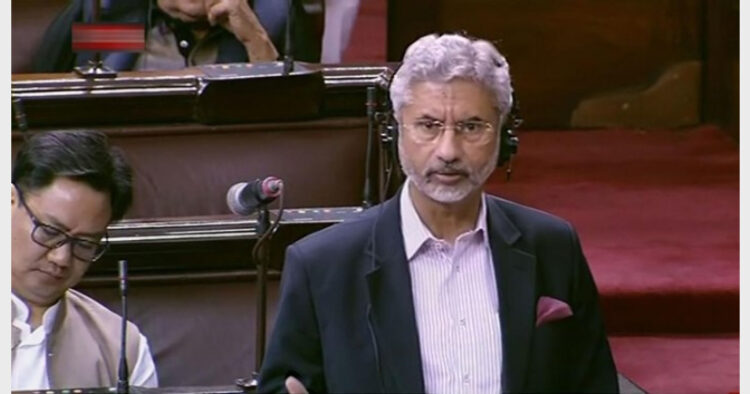New Delhi: After bringing in thousands of Indians from overseas during last year’s pandemic and lock down, the government of India has now shifted focus to ensure that they could now “go back to their usual places of work, study and domicile”, External Affairs Minister Dr S Jaishankar said in identical statements made in both the Houses of Parliament on Monday, March 15.
“The focus of our efforts in the last few months has now shifted to Indians going back to their usual places of work, study and domicile. To that end, our Government has concluded air transport bubbles that are temporary reciprocal arrangements for commercial passenger services until the resumption of regular international flights,” he said.
Kerala received the maximum returnees, followed by Delhi, Maharashtra and Tamil Nadu.
“UAE was the country from where the maximum number of stranded Indians returned, followed by Saudi Arabia, USA and Qatar,” he said.
Such arrangements have been concluded with 27 nations so far, the Minister said adding, the Air India group alone has operated more than 9500 flights, taking 10.9 lakh passengers abroad. “The largest numbers, not surprisingly, have gone to the Gulf,” he said.
Dr Jaishankar pointed out that during the pandemic, Prime Minister Narendra Modi had declared thatthe Government would take care of both lives and livelihood.
“This guidance has been the basis for the activities of our diplomacy abroad”.
He said 2020 was to address the situations of difficulty and distress that many stranded Indians faced abroad.
“The Prime Minister directed that we undertake the Vande Bharat Mission to bring back our countrymen and women home,” he said.
“This was an all-of-the-Government effort, involving the Ministries of External Affairs, Civil Aviation, Home Affairs, Health, Defence and Shipping, amongst others. A total of 45,82,043 people from 98 countries have returned to India under the aegis of the Vande Bharat Mission”.
The vast majority came through flights, though there were also some who came by ship and across land crossings.
The Minister said 39 percent of the returnees were workers, 39 percent have been professionals, 6 percent students, 8 percent visitors and 4.7 percent stranded tourists.
“….while organizing the return home, the Government also focused on ensuring that our people were provided the necessary amenities in foreign countries. This applied to those awaiting repatriation as well as those who stayed behind. It involved a vast range of activities that were coordinated by our Embassies and High Commissions”.
He further said, “Members would appreciate that the largest repatriation exercise in the history of the world could not have happened without the goodwill and cooperation of partner governments. And if that was so forthcoming, it is because of the enormous efforts of this Government’s diplomacy, starting from the Prime Minister personally”.
The Minister said, Indian fishermen have also been affected by the difficulties arising from the pandemic.
“We saw, in particular, serious problems faced by those who were working out of Iran. Some Gulf nations also witnessed this, perhaps to a lesser degree. Many members expressed their anxieties at that time, and here too, the repatriation phase is over and the re-employment one has just started,” Dr Jaishankar said.














Comments